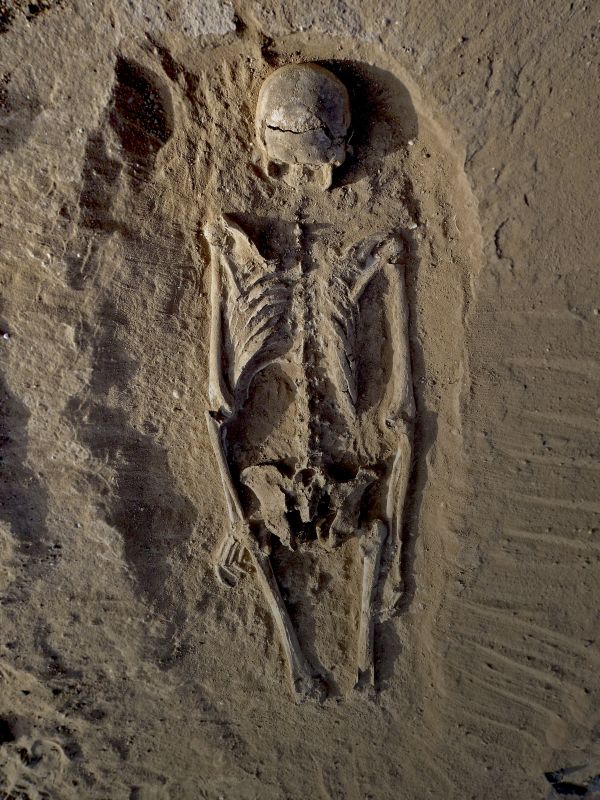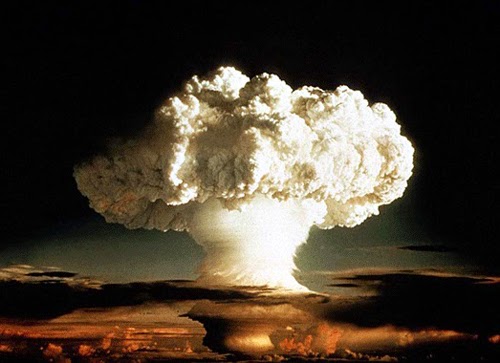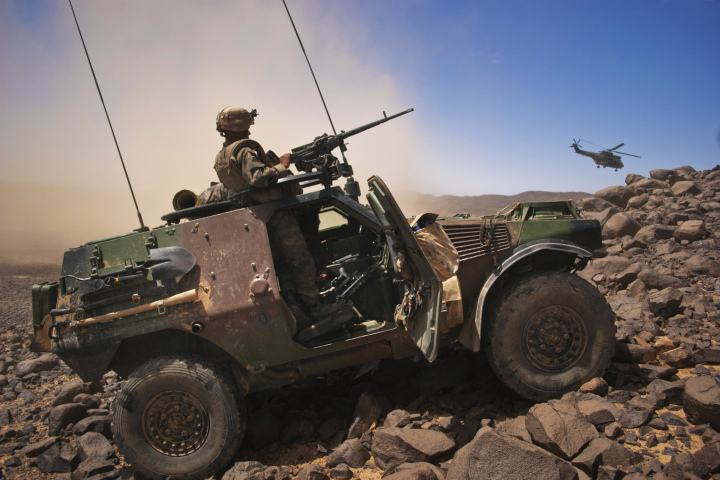When do you think war began? With the first tilled fields and walled cities, or well before, in the mists of prehistoric man? Your view of when war started reflects your view of what human nature is.
 The majority of people these days believe human nature is a “tooth and claw” survival of the fittest, and war is just an expression of our nature. This view stems from a misreading of Darwinian evolution.
The majority of people these days believe human nature is a “tooth and claw” survival of the fittest, and war is just an expression of our nature. This view stems from a misreading of Darwinian evolution.
Recent findings of a group of prehistoric hunter-gatherers slaughtering another group near Lake Turkana in Kenya approximately 10,000 years ago seem to give credence to a Hobbesian, tooth and claw worldview.
Of 12 relatively complete skeletons, 10 showed unmistakable signs of violent death, archeologists said. A blow to the head even killed a pregnant woman with a late-term fetus, the fetal skeleton preserved in her abdomen.
It appears to be the first evidence of a massacre in a foraging society, representing warfare among prehistoric hunter-gatherers. Some anthropologists said the find “shows warfare occurred before the invention of agriculture.”
It raises the old question, where did man go wrong? It also raises the question: Can living generations really hope to change the course of humanity?
As with many things, part of the problem is how we define war. Just what is it? War is the planned and organized killing of other people by one group against another, whether combatants or non-combatants, by ‘rules of war’ or genocide.
By this definition, Jane Goodall has witnessed war/genocide waged by one troupe of chimpanzees against another troupe in Gombe National Park in Tanzania. Called the Gombe Chimpanzee War, it lasted for four years and wiped out one community.
This points to the tendency toward war in the evolution of so-called higher thought. Chimpanzees are our closest relatives, have complex social and emotional systems, display rudimentary tool use, and possess the capability for simple planning.
Only humans have broken the bonds of ecological niche however. We evolved brains with a vastly increased ability to consciously remove and remember, which enabled us to have knowledge of other animals, in order to hunt more effectively than any other animal, and knowledge of plants, gathering a much greater variety of foods than any other animal.
The metaphorical “forbidden fruit” of Genesis is therefore symbolic thought, which, once tasted, became an insatiable appetite for conquest of nature, and other peoples.
We cannot blame evolution however. Humans also possess the potential for true intelligence. The awakening insight in the brains of even a small minority of individuals would reduce the stupidities of nationalism, group identification, belief systems and power that lie behind the sophisticated rationales and technologies of war in the digital age.
War is the manifestation of the unaddressed inner reality of countless individuals, dark currents that few care to face within, much less take responsibility. Most people have resigned to the madness of wasting trillions of dollars on nuclear weapon systems that cannot be used, or on weapons that are all too readily used and sold to the saturation point in the world.
The day after 9.11, in shock like nearly all Americans and many people around the world, I went for a walk on a pristine California morning. There wasn’t a cloud in the sky, and I kept asking, where will this lead? I walked for some distance, at once deeply  moved by the beauty of nature and the horror of man.
moved by the beauty of nature and the horror of man.
Returning across a footbridge I looked to my right to see a perfectly formed mushroom cloud. I wanted to know, and felt I was shown. When I returned, I asked my housemate, who had witnessed the sun-like illumination of the High Sierra from a nighttime nuclear test in the Nevada desert on a camping trip with her parents, to go out and look in the direction of the cloud. She came in ashen, and spoke of mushroom clouds and her childhood memory.
Both because of his criminal negligence with regard to the slow-motion humanitarian crisis in Syria (which the United States could have greatly mitigated by forceful, military-supported leadership for sanctuaries and no fly zones before Russia entered the fray), and for signing off on nuclear-tipped cruise missiles (an utterly unnecessary and destabilizing weapon as the new Cold War with Russia heats up), We, the People of the World, hereby revoke President Obama’s Nobel Peace Prize.
Given the deteriorating state of the world, and of human consciousness, the use of nuclear weapons is probably inevitable in the foreseeable future. As horrific as it will be if even just one is detonated over a city, a minority of people can truly transform now, and take the first steps on a radically new course for humanity—before World War III erupts.
Martin LeFevre

